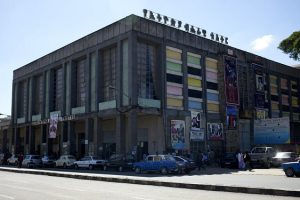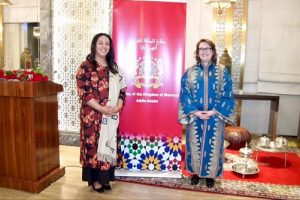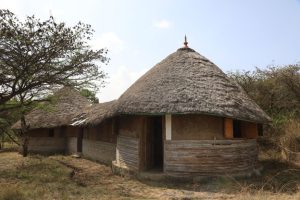BY MULUGETA GUDETA
A group of young Ethiopians led by Yared Shumete, a filmmaker by occupation, is making the annual journey to the mountains of Adwa, in Tigray where 125 years ago Emperor Menelik II fought and defeated the Italian invaders in what can be characterized as an epic battle for the soul of Ethiopia.
Had the Italians won the war, Ethiopia could have sunk into a long period of Italian colonial rule that could only be terminated sometime in the 1960s when colonialism rule started to crumble throughout Africa.
The annual trek to the battlefield by members of the young generation can be described as an ‘epic’ journey in its own right. Although the long trip of more than 100 km takes place in time of peace, the young bloods are experiencing what the Ethiopian soldiers went through at the time of the actual battle. They are making the journey on foot, cooking their meals, sleeping in open country and enduring the elements.
It is not definitely a pleasure walk in the garden or a meadow. This is neither mountain hiking for pleasure or sports. Though young and determined, the travelers are facing hardships, particularly this year when the weather proved less accommodating than usual. They have to brave the bad weather and sudden flashes of rain, cross rivers and escalate high mountains and deep gorges.
A local radio station recently hosted a talk show with the leaders of the group and Yared Shumete in particular, asking him how the trip looks like and what they encountered on their long march to the place where Ethiopian history was made by their forefathers. Yared described the trip as unusually harsh compared to similar trips in the past. He said the weather this year proved tough and a number of travelers fell ill on the way while some of them needed serious medical attention although they could recover soon and continue their voyage.
It is to be recalled that the annual journey to Adwa is the brainchild of Yared himself who took the initiative to organize a group of young enthusiasts who were eager to reenact the historic journey to see how it felt and in a way relive history.
The last seven trips were relatively free from challenges, as he related to the radio host. At the start of Guzo Adwa earlier, Yared told the media that he was taking 125 youngsters to the journey including 18 women adding that the project has grown from as little as four or five people and has been growing every year to reach the present number of participants. The journey from Addis to Adwa in Tigray is 1,010 km long.
It would be stating the obvious to say that Adwa is not only a great Ethiopian victory against colonialism. It is also the first victory of black people against white domination. In brief, it is part and parcel of black history as important as the deportation of black Africans to America aboard ships for slave labor in the United States cotton plantations. This chapter of black history is a grim reminder of black oppression. The slaves were forced to cross the Atlantic Ocean by the slave traders who
sold them to plantation owners in the new continent. Before the victory of Adwa the history of black people around the world had no achievement worthy of great pride. Adwa has dramatically and ultimately changed all that.
The Island of Goree is a small place on the Atlantic Ocean off the coast of Dakar in Senegal. It is the place where the Atlantic slave trade was launched in the 15th century and served the same purpose until the 19th century.
It is now turned into a historic, albeit tourist destination where blacks from the Diaspora and tourists flock to visit the site which is a reminder of the journey of horror for hundreds of thousands of African, later on captured by “Roots” a movie depicting that same period.
Adwa in a way put an end to humiliation of black people everywhere in the world and showed them how to walk with their heads high. Adwa was the beacon of black liberation.
As indicated above, the Senegalese island of Goree is visited by tens of thousands of tourists every year. Adwa is celebrated in this country but it has no place in the annals of important tourist destinations. It should be a global tourist destination; unfortunately, no one has so far taken the initiative to do the job.
Yared Shumete and his young colleagues are entitled to turn Adwa into an international tourist destination instead of making the trip to the battlefield once a year while they could invite black people and tourists to join them on this memorable journey.
This vision could have been achieved a long time ago. Adwa deserves more than a museum or more than a monument in its memory. There is still enough time in the future to make Adwa a global tourist destination if not by this generation, by the next one.
Remembering the past is a great human character or a gift. What makes us humans is in fact our ability to collect our collective memories and use them whenever the need arises, like during wars of independence or freedom. People who have no past worth remembering may not have a present and future worth being proud of. History is not only a great healer but also a great reminder.
Remembering the past properly is also an act of psychological healing. Not the kind of remembrance whereby we put flower carnations at the feet of monuments to the sound of march bands. When we remember events like the Battle of Adwa an annual ritual or pilgrimage to the place is not enough to refresh our memories and pass it over to the next generation.
What we need is in depth remembrance, a kind of national soul searching in order to differentiate between the real heroes of historical events. When we remember Adwa, we have to be able to heal our historical wounds and use the event as a moment of sober reflection and forging a new kind of national unity.
National war heroes are everywhere the objects of adulation, respect or admiration. The Americans, the British, the French, the Chinese and almost all nations of the world have their own war heroes. British commander and war hero Wellington who fought against Napoleon at Waterloo and defeated what was assumed to be the “unbeatable” giant of French history, is still the subject of books, movies, military doctrine and analyses. How has art so far treated Adwa? True with songs and dances; but where are the films, theatres, museums and other artistic achievements to its name?
Many historians tell us that Ethiopian history is a history of wars and conflicts fought internally among warlords during the Era of the Princes and externally against foreign invaders. Allied commanders of WWII are still alive through written accounts, films and media.
Russian war hero Marshal Zhukov is a decorated war hero who commanded decisive engagements against the German invaders during the last world war and saved Russia from humiliation and possible defeat.
As a rule, here in Ethiopia too, war heroes are recognized as defenders of the nation against internal and external enemies bent on putting into question its very survival. The culture of respecting national heroes however started relatively recently as Ethiopia built a modern
standing army that is capable of carrying out both national and international duties. There were distinguished war heroes who valiantly fought against the Italian invaders and occupy a respected place in our collective memory.
But there are also many unsung heroes who have disappeared in the darkness of history unknown to the nation and the world. The duty of art should be to find out these people and present them to the world with the help of novels, epic war movies and biographical episodes.
Poems are written, songs sung and theatres produced to immortalize their heroic deeds. However, our culture of giving due credit to these heroes is short-lived if not superficial.
We have no war museum, no research center on military affairs or academies where the military prowess of those heroes are studied and given the place they deserve in the annals of history. The real heroes are thus quickly forgotten some of them only to be remembered during annual celebrations of particular battles and victories.
Adwa is in fact the first modern battle in which a multinational force fought a formidable and technological far advanced enemy and defeated it within a day or so.
That was in fact the first Ethiopian army composed of members of various ethnic groups who fought together without an awareness of their ethnic differences that were overshadowed by their Ethiopian conscious which was natural and to which they all subscribed.
Perhaps in the near future, the coming generations of Guzo Adwa participants would wake up to the need of making the event an internationally acclaimed occasion not to eulogize the heroes but also to give black people the confidence they need in their present struggles against ethnic bigotry wherever it is manifesting itself, like in the US where the Black Lives Matter movement badly need an Adwa-type clarion call for the inevitable victory; since Adwa has long become part of the global black consciousness movement.
The Ethiopian Herald February 26/2021





